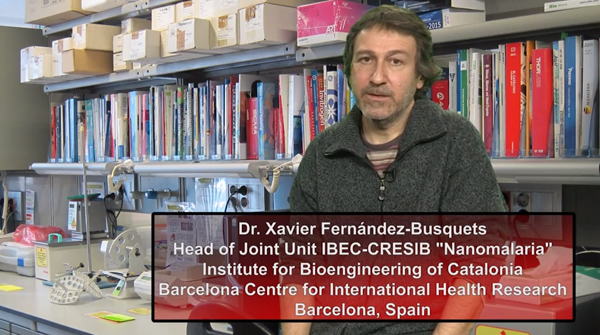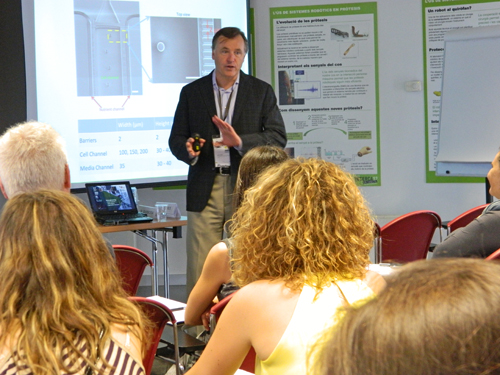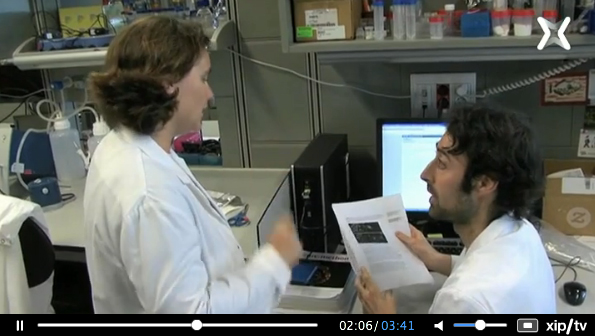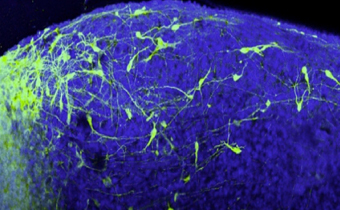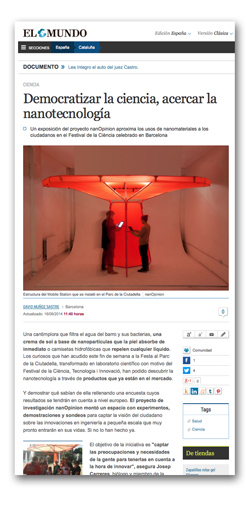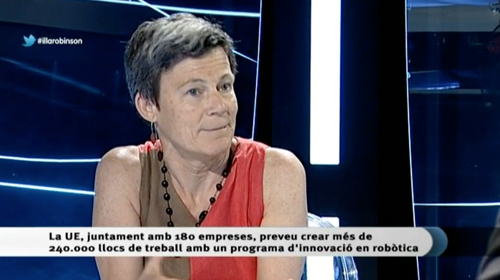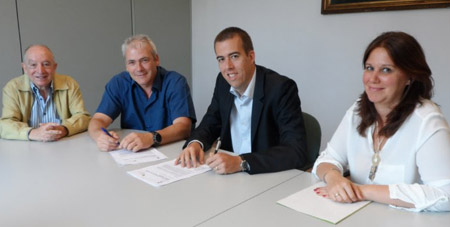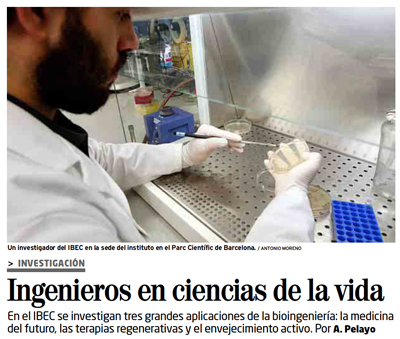IBEC and Israeli Ministry of Health join forces to promote nanomedicine
 IBEC’s Xavier Fernández-Busquets appears in a video produced by the EU-funded ERA-NET project EuroNanoMed on “Drug Delivery: The Use of Nanoparticles in Medicine”.
IBEC’s Xavier Fernández-Busquets appears in a video produced by the EU-funded ERA-NET project EuroNanoMed on “Drug Delivery: The Use of Nanoparticles in Medicine”.
It’s the second in a series of videos featuring scientists working in the field of nanomedicine which are being produced for EuroNanoMed by its Israeli partner, the Chief Scientist Office of the country’s Ministry of Health (CSO-MOH).

